A Hybrid Course on Water Quality – An Approach to People’s Water Data
₹1,000.00
Last day of registration: January 31, 2025
Course Duration: Commencing January 27 – Ending April, 2025
Session Days : Monday, Wednesday, and Friday
Session Timing : 05:00 p.m. – 05:50 p.m. (IST)
Out of stock
- Description
- Profile of the Instructor(s)
- Eligibility & Fees
- Course Essentials
- Intended Audience
- Certification
- Topics Covered
- Course Schedule
- Contact for Support
- Feedbacks from Previous Batches
- Reviews (7)
Profile of the Instructor(s)
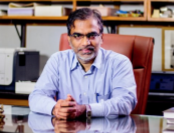 Prof. Thalappil Pradeep is an Institute Professor at IITM. He has trained over 300 graduate, masters, and postdoctoral students to do original research and thousands of others in different branches of science and engineering through classroom teaching. He is an author of 7 books, 550 papers, and 120 patents. He has built seven start-up companies. His technologies on clean water have reached 13 million people. He is a fellow of all the science and engineering academies of India, The World Academy of Sciences, the African Academy of Sciences, and the American Association for the Advancement of Science. He has received prestigious recognitions such as the Padma Shri, VinFuture Prize, and Eni Award, among others.
Prof. Thalappil Pradeep is an Institute Professor at IITM. He has trained over 300 graduate, masters, and postdoctoral students to do original research and thousands of others in different branches of science and engineering through classroom teaching. He is an author of 7 books, 550 papers, and 120 patents. He has built seven start-up companies. His technologies on clean water have reached 13 million people. He is a fellow of all the science and engineering academies of India, The World Academy of Sciences, the African Academy of Sciences, and the American Association for the Advancement of Science. He has received prestigious recognitions such as the Padma Shri, VinFuture Prize, and Eni Award, among others.
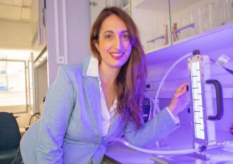 Prof. Hadas Mamamne is a head of the Environmental Engineering Program and the Water-Technology Laboratory at the School of Mechanical Engineering, Tel Aviv University, Israel. She specializes in advanced water purification and disinfection. Committed to sustainability, she pioneers point-of-use technologies to provide safe drinking water in low-income areas. As a visiting faculty at IIT Madras, she actively contributes to the development of water treatment technologies. Embracing off-grid solutions, her team explores UV-LED technologies as an innovative alternative to mercury lamps. Furthermore, she conducts smartphone-operated surveys to assess water quality in rural Indian communities.
Prof. Hadas Mamamne is a head of the Environmental Engineering Program and the Water-Technology Laboratory at the School of Mechanical Engineering, Tel Aviv University, Israel. She specializes in advanced water purification and disinfection. Committed to sustainability, she pioneers point-of-use technologies to provide safe drinking water in low-income areas. As a visiting faculty at IIT Madras, she actively contributes to the development of water treatment technologies. Embracing off-grid solutions, her team explores UV-LED technologies as an innovative alternative to mercury lamps. Furthermore, she conducts smartphone-operated surveys to assess water quality in rural Indian communities.
 Prof. Ram Fishman is a Professor of Development Economics at the Department of Public Policy, Tel Aviv University, and directs the Nitsan lab for sustainable development. His focus lies in bridging Israeli innovation with low-income users in developing countries. Specializing in sustainable agriculture, water scarcity, and climate change, he employs field work, experiments, and data analysis. Formerly an assistant professor at George Washington University and a post-doctoral fellow at Harvard Kennedy School, Ram holds a Ph.D. in Sustainable Development from Columbia University. His research interests span Sustainable Development, Food, Water, Energy, Climate Change, Agriculture, and Technology Adoption.
Prof. Ram Fishman is a Professor of Development Economics at the Department of Public Policy, Tel Aviv University, and directs the Nitsan lab for sustainable development. His focus lies in bridging Israeli innovation with low-income users in developing countries. Specializing in sustainable agriculture, water scarcity, and climate change, he employs field work, experiments, and data analysis. Formerly an assistant professor at George Washington University and a post-doctoral fellow at Harvard Kennedy School, Ram holds a Ph.D. in Sustainable Development from Columbia University. His research interests span Sustainable Development, Food, Water, Energy, Climate Change, Agriculture, and Technology Adoption.
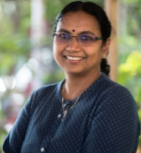 Prof. Ligy Philip, IIT Madras Chair Professor, excels in Civil Engineering. A Fellow of the National Academy of Engineers (FNAE) and the Royal Society of Chemistry (FRSC), she holds a Ph.D. from IIT Kanpur. Her research spans industrial effluent treatment, bioremediation, innovative drinking water processes, and sustainable waste management. Recognized globally, her tech solutions benefit industries and NGOs. As a pollution control consultant, she aids global sanitation projects with organizations like the Bill and Melinda Gates Foundation. Serving on expert committees for the National Green Tribunal and pollution boards, Prof. Philip executes socially impactful projects, implementing sustainable water and waste management in five villages.
Prof. Ligy Philip, IIT Madras Chair Professor, excels in Civil Engineering. A Fellow of the National Academy of Engineers (FNAE) and the Royal Society of Chemistry (FRSC), she holds a Ph.D. from IIT Kanpur. Her research spans industrial effluent treatment, bioremediation, innovative drinking water processes, and sustainable waste management. Recognized globally, her tech solutions benefit industries and NGOs. As a pollution control consultant, she aids global sanitation projects with organizations like the Bill and Melinda Gates Foundation. Serving on expert committees for the National Green Tribunal and pollution boards, Prof. Philip executes socially impactful projects, implementing sustainable water and waste management in five villages.
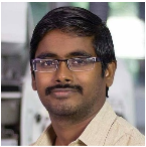 Dr. G. Velmurugan, a Scientist at KMCH Research Foundation, Coimbatore, India, holds a Ph.D. from Madurai Kamaraj University and underwent training at Cologne University (Germany), IIT Madras, & University of Florida (USA). Specializing in the interaction between chemicals and microbes in diverse environments, especially water, he researches into its implications on ecosystems and human health. Recognized with the Young Investigator award from the Association of Microbiologists of India and the International Society for Microbial Ecology, Dr. Velmurugan's perspective revolves around microbiota. His team aims to leverage microbiota for addressing global challenges, including water pollution, climate change, and human diseases.
Dr. G. Velmurugan, a Scientist at KMCH Research Foundation, Coimbatore, India, holds a Ph.D. from Madurai Kamaraj University and underwent training at Cologne University (Germany), IIT Madras, & University of Florida (USA). Specializing in the interaction between chemicals and microbes in diverse environments, especially water, he researches into its implications on ecosystems and human health. Recognized with the Young Investigator award from the Association of Microbiologists of India and the International Society for Microbial Ecology, Dr. Velmurugan's perspective revolves around microbiota. His team aims to leverage microbiota for addressing global challenges, including water pollution, climate change, and human diseases. Eligibility & Fees
Participants must have background in science at some stage in their academic preparation. Final year B.E./B.Tech., M.E./M.Tech, M.Sc./M.A., Ph.D. and equivalent students may join.Exempt for IITM students
a. Registration for theory: Rs 1180 (Rs 1000 + 18% GST)
- Theory Sessions: Rs.1000 + 18% GST (payable now)
- Practicals and Consumables: Rs.4000 + 18% GST (payable later, after 2 months)
Course Essentials
-
Students should utilize a Gmail account for course registration to streamline the process and enhance their user experience.
-
While attending lectures and viewing videos can be done on tabs and mobile phones, it is crucial to utilize a laptop or desktop for submitting assignments, quizzes, and the end-semester exam. This ensures accurate submission and entry on your course page.
-
For the end-semester exam, it is vital to have a reliable power source and uninterrupted power backup. Participants are responsible for ensuring the timely submission of exam answers within the stipulated timeframe to be considered for certification.
Intended Audience
Final year B.E./B.tech, BS/BS-MS/M.E./M/tech., M.Sc., or PhD and equivalent students with a science background.
Certification
To qualify for certification, participants must meet the following criteria: regular attendance, complete all assignments satisfactorily, and achieve a passing grade in the end-semester exam. The overall minimum percentage required for certification is 65%. The final decision regarding certification rests with the course coordinator.Topics Covered
A. Water quality: Concepts
- Water cycle: An introduction
- Clean water: A discussion of potable water
- Microbial, chemical, heavy metals, radiological and particulate matter pollution
- Measurements and units
- Accuracy and precision
- Sampling and guidelines
B. Water quality: Parameters
- Water quality parameters: Common parameters such as temperature, pH, conductivity, dissolved oxygen, alkalinity, oxidation-reduction potential, turbidity and their implications
- Microbial contamination in drinking water and its implications
- Common chemical contaminants such as ammonia, nitrate, chloride, BOD and TOC, in drinking water
- Pesticides, weedicides, and specific examples
- Emerging contaminants such as pharmaceuticals, personnel care products, PFAS, etc.Ligy Philip,
- Heavy metals in drinking water and implications
- Arsenic in water as an example
- Turbidity and its implications
- Radiological parameters
- Limits of contaminants in water: Guidelines and their origin
- Enforcement agencies and their role: Legal guidelines
- Microbial diversity in water and antimicrobial resistance
C. Water quality measurements
- Measuring water quality: Instrumentation for common WQ parameters
- Calibration, validation of accuracy, quality control of sensors and kits, use of standards
- Physical and chemical disinfection: Measurement methods
- Heavy metals: Measurement methods
- Turbidity measurements
- Ultra-trace measurement of water quality
- Risks of wastewater contamination in WQ
D. Water quality survey (source and household)
- Field test kits (FTKs)
- Geo-spatial coordinates, their detection and incorporation in data
- Survey research: An introduction
- Statistical analysis of water data
- Common water purification methods and technologies at the household level and in rural communities
- Field measurements: Guidelines to the specific techniques being used
- Hydroinformatics: An introduction
E. Measurement, behavior and impact
- Water related practices in the household
- Behavioral obstacles to improving water quality
- The role of measurement and information in changing behavior
F. Work in the field Instructors
- Training, data and analysis with FTKs and equipment
- Analysis of data
- Innovations using water quality data: A discussion
Course Schedule
Last day of registration: 31th January, 2025Course Duration: Commencing January 27 – Ending April, 2025
Session Days : Monday, Wednesday, Friday
Session Timing : 05:00 p.m. – 05:50 p.m. (IST)
Contact for Support
For any queries related to the course, you may please write to:ramya_coe@icsrpis.iitm.ac.in
suzankagan@gmail.com
For any queries related to registration please write to:anupama@nptel.iitm.ac.in
florence@nptel.iitm.ac.in
Feedbacks from Previous Batches
- Great Initiative!! We do require these type of theoretical as well as experimental courses for near future to establish the importance of highly important need of today’s requirement i.e. water. Hoping to get some good experience with the course with new insights. Thanks to the organizers.
- Being an experienced environmental professional, I can surely recommend this course. It covers basics of water quality that will help engineers, consultants, and scientists in understanding better in field applications
- As this course’s coordinator, I want to use this platform to present the highlights of this course to students.This hybrid format seamlessly blends theory and hands-on experience, providing a comprehensive understanding of water quality parameters and standards.The course structure, divided into theory and practice, allows students to grasp the fundamentals through engaging online sessions and apply that knowledge in the field. The opportunity to collect and contribute to ‘People’s Water Data’ empowers one to make a real impact in understanding and improving water quality.The modules are delivered by eminent water experts.Highly recommended for anyone interested in water science, this course is a perfect blend of education, hands-on experience, and community impact.
- Water, being the essential need of living organisms which has to be of good quality and in pure form for biological processes. This course has been recommended to my students at University of Kota Rajasthan to understand the quality parameters of water and to get hands on training for analysis of water.
- Highly recommend this course for graduate students, university lecturers, and technicians (especially from Africa) interested in water quality monitoring and purification research. The facilitators are seasoned scientists in the field of water research.
- Great initiative from the organizing team. This workshop helps in understanding the significance of water quality.
- The course was informative and enlightening. It is helpful to know the water we drink and how to overcome contamination and bring awareness to the society
- The Program, “ A Hybrid Course on Water Quality – An Approach to People’s Water Data” in the duration January 2024- May 2024, was a very good, career-oriented initiative . It’s very fruitful for Academia, Researcher’s as well as Industries. I learnt a lot about Water Analysis in Theory Component. Each and every lecture was very informative.
- All Professors were very enthusiastic . I was so impressed by the lectures of Prof T. Pradeep entitled “Arsenic in the Environment & Measurement of Arsenic”; Lectures by Prof. Ligy Philip and Prof. Hadas Mamane Mam , Prof. Ram Fishman & Dr. G. Velmurugan Sir’s were also absorbing. I also appreciate the Lectures by Prof. Hirakendu Basu on Radiological Parameters and Prof. Asaf Pras Sir’s lecture on “Introduction to Geo-Spatial Data Sciences”. Practical session at IIT Madras campus, was an amazing experience to me. I am a Researcher of Parasitology (Zoology) & was so very impressed by the indeliable mark by the simplicity of Biological Sampling Method & Sampling Kit. Actually this was a first exposure to me with this type of Kit for Biological Sample Collection. Rest of all Water Analysis Parameters, like measurement of free Chlorine , total Chlorine, pH, Alkalinity, Hardness, ORP, Conductivity, TDS & Temperature kit method gave impressive demonstration of accurate readings.
- During ‘Class’ time, learned Professors focused on Calibration of Instruments, that would be very helpful in ‘Practical’. At last I appreciate the ‘Discard method of Biological sample’, because most of the time, Researchers are not so aware that harmful bacterial colony grew in kit, which was dangerous. The direct pouring of untreated wastes in sink could spread pathogenic microbes & these could be responsible for prevalence of dangerous disorders.
- In IITM lab we learnt all these tit bits with precaution ary steps. Ten Assignments, two quiz, Parallel theory sessions and final exam after Practical session, kept us on toes. It’s virtually the complete package for students & was very informative. I am thankful to Professor T. Pradeep Sir for this amazing initiative. I am grateful to Prof. Suzan Kagan Mam & Dr. Ramya Dwivedi Mam for successful completion of the Course
- Wonderful course and insightful learning with eminent professors. Great experience
- Attending the “A Hybrid Course on Water Quality – An Approach to People’s Water Data” was a truly enlightening experience, giving me a thorough appreciation of the crucial relevance of water quality. This hybrid course not only extended my knowledge, but also made me more conscious of the critical need to safeguard and preserve our water supplies. The combination of hands-on experiences and insightful lectures helped me understand the complex processes involved in assessing and maintaining water quality standards. I’d want to thank Prof Pradeep, Prof Hadas for conducting such a valuable course on Water Quality.
- The course on “Water Quality and People’s Water Data” is an invaluable resource for anyone interested in understanding the nexus between water quality and community-driven data. Through comprehensive modules and practical exercises, it equips learners with the knowledge and tools to assess, monitor, and improve water quality using citizen science approaches. The emphasis on empowering individuals to contribute to data collection and analysis fosters a sense of ownership and accountability, crucial for sustainable water management. Overall, it’s a commendable initiative bridging the gap between scientific expertise and grassroots activism in safeguarding our most precious resource.
- As a non-chemist, I initially thought I couldn’t keep up with it, but the way the lecture was conducted was excellent. Anyone from any background can easily understand the importance of water quality in drinking water. The main highlight of this course was the practical session, during which I learned a lot. I would say this is a must-take course for all water enthusiasts.
- A hybrid course on water quality- An Approach to People’s Water Data, is a fascinating course that aims to create water-literate citizens and generate water data by testing the water quality in selected houses and analyzing parameters such as total chlorine, free chlorine, total hardness, total alkalinity, pH, oxidation-reduction potential, conductivity, temperature and turbidity. It is a comprehensive educational program that has combined various aspects of water quality management, including water literacy, water quality impact on human health, water quality testing, and data generation. I have been immensely benefited by undertaking this hybrid course on water quality as it has empowered me with the knowledge associated with water literacy and fostered awareness regarding water quality prediction models. Moreover, it has also empowered me to contribute towards sustainable water resource management, promote informed decision-making regarding water quality issues, and facilitate the application of advanced technologies in water quality assessment and prediction. Furthermore, it has also enlightened me with the knowledge and skills needed to address challenges related to water pollution and the safety of drinking water, ultimately leading to better environmental stewardship and improved water resource sustainability. Lastly, I would be happy if I am allowed to join the upcoming version of the course to have a better knowledge regarding drinking water quality in the near future.
- The theory sessions are thoughtful,Daily treasure hunts; we learned new things daily which make us to refer numerous articles and books .It’s a departure from the ordinary NPTEL courses, added with the excitement of offline practical classes which is the main reason to enroll this course the real highlight is The fieldwork! Working with passionate volunteers, who puts huge efforts to collect water samples, explained the essentials of water analysis to public. It’s a refreshing change of scenery, stepping out of our usual college and hostel routines to engage with the community and examine water samples. When we are collecting samples we met an old couple really sweet like a family and close to our heart . And It is thrill to uncovering potential contaminants in our drinking water , practical class an exhilarating experience thanks for great guidance .if you’re eager to explore the depths of water analysis, this course is an absolute must!A massive round of applause 👏👏👏 to the organizers and NPTEL team for this incredible course!
- It was quite fun and knowledgeable to attend this hybrid course which provides a great knowledge on people’s water data. As it offers knowledge from conducting survey through public participation and getting information related to several parameters associated with water, it was an engaging session. And the wonderful part is that, we went to the field, taken survey and collected samples.. which is not an easy job at all.. But it went smoothly and we learned a lot from that.. And my sincere thanks to all the team members and Dr. G. Velmurugan Sir (KMCH Research Foundation) for giving me such a great opportunity to be a part of this course.
- A Hybrid Course on Water Quality – An Approach to People’s Water Data,” offered through NPTEL and led by IIT Madras, is a comprehensive and innovative program aimed at fostering water literacy among participants. The course integrates both theoretical and practical components, covering a wide array of topics such as water contaminants, measurement techniques, water quality standards, and the use of hydroinformatics.Participants will engage in online lectures, assignments, discussions, and hands-on field measurements, making it suitable for senior undergraduates, postgraduates, research scholars, and professionals in the field. The practical aspect includes using field test kits to assess water quality in real-world settings, ensuring students gain practical experience alongside theoretical knowledge The course is designed and delivered by esteemed faculty from IIT Madras and Tel Aviv University, including experts like Prof. Thalappil Pradeep, Prof. Ligy Philip, and Dr. G. Velmurugan, all of whom bring a wealth of knowledge and experience in water quality research and sustainable water managementOverall, this hybrid course is highly recommended for anyone interested in enhancing their knowledge and skills in water quality assessment and management, with the added benefit of gaining certification from IIT Madras upon successful completion.
- I did this course in the previous cohort. I wish I had done such a valuable course earlier in my career. This course is extremely valuable and relevant for anyone working or doing research in Ministry of water, environmental sciences & engineering, public health, aquatic sciences, etc. The professors who taught us are top notch! I highly recommend
- Participated in the first batch of this hybrid course as an interested Citizen. Was thoroughly impressed with the faculty, classes, quizzes and everyone’s passion to make a difference on a such a fundamental topic. At first it seemed vast, but as the course progressed the faculty demystified this vast topic, understand the challenges and differences that can be made in each stage of water-cycle and how the data collection will make a difference as the sample size increase and helps in creating awareness and as inputs to policy making. It also made one realize the scale at which the impact is made by policies and the practical session made me realize – all is not lost and there’s still much that can be improved and how just education and awareness can make a difference. Hoping to use the learning and apply them more practically in my day to day activities and also spread the message around.Highly recommend this course for anyone interested in Water Quality – not just the associated stream students and professionals.

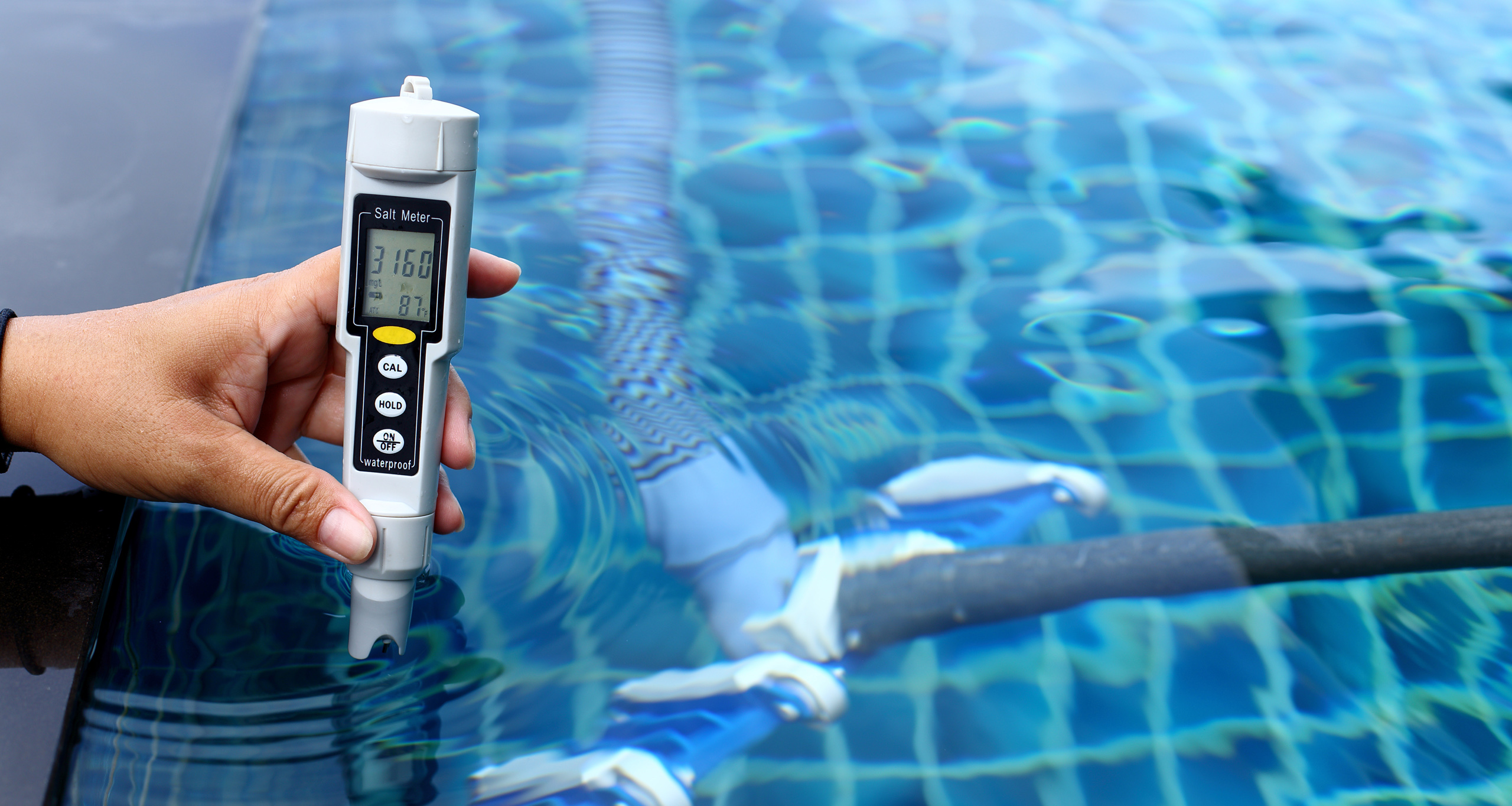
Prof. P. Gurumoorthi –
Very nice initiative to fulfill the mission of Jal Jeevan
Abhishek kumar –
The course has been designed very intelligently to cover the most important aspects of water through both theory and practical sessions, guided by pioneers and legends in their field.
The mission of this course is to create comprehensive data to ensure clean water for all.It is such a global dream.Keep dreaming,as it’s The only way to change the 🌍
Sudhir S –
was in the first batch of this course. As a non-chemist, I initially thought I couldn’t keep up with it, but the way the lecture was conducted was excellent. Anyone from any background can easily understand the importance of water quality in drinking water. The main highlight of this course was the practical session, during which I learned a lot. I would say this is a must-take course for all water enthusiasts.
Dr. P.Amaravathy –
As a coordinator of the course of the previous batch, I feel proud of the journey we had undertaken together. The students can understand the detailed exploration of the concepts like pH, turbidity, dissolved oxygen (DO), alkalinity, hardness and microbiological parameters. The students can get the hands on experience on water sample collection in the field, laboratory testing techniques and interpretation of the results. So I can say that this course not only enhance academic understanding but also prepare the students for professional roles in environmental science, public health, or water resource management. Many industrialists and software employees also had joined the course last time and enjoyed the field experience. So it is like joyful learning.
Sritha S –
The theoretical sessions were informative and the practical sessions offered us hands on and a great experience of teamwork and collaboration.
Anubhav Mahapatra –
Course structure is well planned and bring the most important resource knowledge to the audience. Theory along with going into fields to collect water quality data will help the tomorrow by increasing awareness regarding precious water. Good course for the different age group people.
Niranjana.V SS16 –
Water is life, Yet, for millions, it still remains out of reach. Clean water means healthier lives – It is a basic human right.
It is important that each & every one of us know about our source of water, quality of the water we intake & the pollution we cause due to our daily activities.
I took this excellent course “Hybrid course on Water Quality: An Approach to People’s Water Data”. The unique feature of this course is that it offers both theoretical knowledge & you can also work on the field!.
Learnings from the course I wish to highlight:
1. Water Quality Parameters – Physical, Chemical characteristics was explained clearly by Prof Ligy Philip.
2. Microbial Diversity in Water: Prof Velmurugan வேல்முருகன் emphasized on One Health. Focus should not be only on human welfare but also microorganisms as we are all interdependent. All microbes are not disease causing & there is a need to conserve the microbial diversity. He also shared the strategies to combat antimicrobial resistance.
3. Pesticides, Emerging Contaminants such as PFAs, microplastics, Heavy metals (Arsenic in water), Trace elements, Hydro informatics were expressed excellently with examples by Prof Thalappil Pradeep.
4. Water Quality Standards, Guidelines & Enforcements, Instruments for measuring water quality parameters, Disinfections, Waste water contamination was discussed in detail by Hadas Mamane 🎗️.
5. Lab methods, Field test kits & practical course was well-planned and handled by coordinators Suzan Kagan, Ramya Dwivedi & Sudhir S.
6. Lastly nothing can be truly solved without including the social aspect, the people, communities & the day to day challenges one faces in getting clean water & raising awareness to treat the water & check for its safety prior to consumption was brought to light by Prof Ram Fishman.
I wish to thank all the Professors for offering this course.
This course helped me to make a real impact by contributing invaluable data & be part of a mission to ensure clean water for all.
#MAKING #HISTORY #WITH #PEOPLES #WATER #DATA.